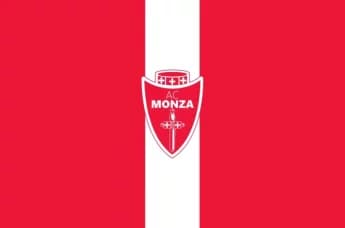Founded in 1891, Belfast Celtic FC became a powerful symbol of pride and unity within its community, leaving an indelible mark on Irish football despite its eventual withdrawal from competition.
Established in 1891, Belfast Celtic Football Club became a prominent symbol of athletic excellence in Ireland, deeply rooted in a cultural identity associated with its mainly Catholic and Irish nationalist fan base. Inspired by Glasgow Celtic, the club swiftly transformed into a fundamental part of Belfast’s lively football scene, affectionately known as 'Paradise' due to its home venue, Celtic Park. Despite the political strife that often marked its history, Belfast Celtic signified more than just a sport—it emerged as an emblem of togetherness and pride for its local community.
The club's exit from the Irish League in 1949 marked an abrupt conclusion for a team that had come to symbolize excellence and style. Nevertheless, its legacy remains, cherished by those who recall its glorious past. Even after its formal exit from competitive play, the name of Belfast Celtic continues to resonate as a symbol of both sporting and cultural importance.
Achievements of the Team
Belfast Celtic boasts a remarkable collection of trophies, including several Irish League titles. Their journey to prominence began with a significant victory in 1900 against their arch-rivals Linfield. After taking a break and then rejoining the league in 1924, the club experienced unparalleled success, clinching four league championships in a row.
In the 1947–48 season, Belfast Celtic achieved a remarkable milestone by setting a European record with 31 straight victories across all competitions, a feat that remains unparalleled to this day. Their excellence was not confined to local leagues; during a North American tour in 1949, they showcased their abilities by famously defeating a strong Scotland team 2–0 in New York City.
The club's achievements extended beyond just trophies. They developed a rich talent pool, highlighted by the presence of five international goalkeepers simultaneously, showcasing their mastery in player development. Their enduring success and active involvement in the community cemented their reputation as one of the leading clubs in Irish football.
Strengths and Limitations
The strengths of Belfast Celtic are rooted in their unparalleled winning mindset, a varied supporter base, and their capacity to both develop and attract outstanding talent. The team's remarkable winning streak during the 1947–48 season showcased their tactical ingenuity, while the deep emotional bond with their fans created an unbeatable home field advantage at Celtic Park.
Nevertheless, their political and cultural identity became a significant weakness, exposing them to hostility and violence that went beyond the football field. The attack on Boxing Day in 1948 highlighted their susceptibility in a deeply divided society, which ultimately played a role in their choice to step back from competitive play.
Their ability to withstand challenges was impressive, yet their dependence on strong leadership figures like manager Elisha Scott revealed a possible vulnerability: without solid institutional support, the club found it difficult to confront the broader socio-political issues affecting their operations.
Tactics & Playing Style
The playing style of Belfast Celtic was marked by creativity, discipline, and a commitment to technical proficiency. The team's tactical adaptability allowed them to achieve success across various competitions and periods. Their methodical strategy of constructing plays from the back and capitalizing on opportunities through quick counterattacks was innovative for its time.
In their memorable matches, particularly the 1949 win against Scotland, they showcased precise finishing and solid defensive strategies, standing strong against more formidable rivals. Their commitment to developing adaptable players, especially goalkeepers, further highlighted their strategic insight.
The leadership from management was vital in shaping their strategies. Elisha Scott focused on fostering teamwork and tactical adaptability, enabling the team to respond effectively in high-pressure situations. This ability to adjust became a defining characteristic of their success during their peak years.
Memorable Matches
One of the most memorable matches for Belfast Celtic was the 1900 league-deciding victory over Linfield, which served as a pivotal moment in their journey to greatness. The hard-fought 1-0 win highlighted their resilience and determination to establish themselves as champions.
The 1948 Boxing Day match, despite being overshadowed by violence, serves as a significant milestone in the club's history. This unfortunate event underscored the fierce rivalries and the deep passion of their supporters.
In 1949, Belfast Celtic achieved a remarkable victory over Scotland in New York, triumphing against a team that had recently clinched the British Isles Triple Crown. This impressive win highlighted their strategic prowess and international appeal, marking a significant moment of pride for Irish football on the global stage.
Finally, their last league game in April 1949 against Cliftonville, which ended in an exhilarating 4–3 victory, captured the essence of the club. This match signified the conclusion of an era but also reinforced their legacy as unwavering competitors.
Prospects Ahead
Although Belfast Celtic officially stepped away from competitive football in 1949, their impact continues to be felt. The club's legacy lives on through historical retrospectives, documentaries, and the cherished memories of fans who share their stories across generations.
Initiatives to commemorate the club's legacy involve creating memorials and cultural programs that celebrate their accomplishments. These initiatives help to ensure that their influence continues to inspire new generations of fans in Irish football.
Although Belfast Celtic will not make a return to competitive football, their legacy continues to have an impact, especially in conversations surrounding the interplay between sport and identity. As contemporary clubs face socio-political challenges, Belfast Celtic stands as a poignant example of both the difficulties and the unifying strength that football can provide.
The gap left by Belfast Celtic has never been completely filled. Nevertheless, their legacy continues to foster a shared belief in the lasting power of sport as a unifying force for community and a source of pride.







